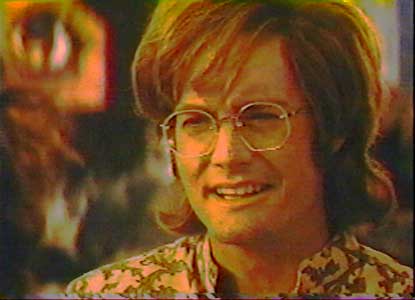Since founding Silver Jews with with college friends Stephen Malkmus and Bob Nastanovich, songwriter/poet/cartoonist David Berman has rolled stoned, gathered a little moss along with a rotating cast of indie-rock contributors, hit rock bottom, toured the Promised Land, saw the light, and built an accomplished body of earthy, intelligent work. Over the years, as the band’s recordings moved from lo-fi to a matte finish country rock, Berman’s deep, wry, downbeat delivery remained a constant. In 2006, after years of not touring and surviving the lowest point in his personal life, Berman took Silver Jews, including his wife Cassie on bass, on the road for the first time. The tour would take the band as far as Israel. June saw the release of Lookout Mountain, Lookout Sea (Drag City), the title of which refers in part to Berman’s restored eyesight following a cornea transplant. In the liner notes Berman supplies tablature so we can play along with the album and, if we’re not already hip to it, realize that the music is ours, not some complex mystery.
RTH: What are five songs that might ease the suffering of your local jukebox?
DAVID BERMAN:
“Long Hot Summer” – The Style Council
“A Few Things Different” – Kenny Chesney (trust me on this one)
“Borrowed Angel” – Mel Street
“Rainy Day Woman” – Waylon Jennings
“Moments in Love” – Art of Noise
RTH: You’ve worked with a shifting cast of musicians. Do you have your next set of recording musicians in mind while writing? How much do you expect the musicians to execute your visions for a song vs how much you expect them to shape the song?
DAVID BERMAN: Some songs find me specifically coaching, but in those 5 to 10 days of practicing the songs in a circle, the band even criticizes itself or I’ll ask them what they think if x does y. There is some negotiation among the players and then there is the amount of figurative talk I’m feeding them about the song. I’ll try to explain the setting and mood with comparisons or correlations in the leadup to the first practices or as we go along. Until the basic tracks are down nothing is finalized, and so I never have to be stuck with a player’s part I don’t like. Not to mention they are all very smart and fluid, and one way or another “get me”, so a lot of this just happens silently and invisibly.
RTH: You include the chord progressions for the songs on your new album, Lookout Mountain, Lookout Sea. What secrets will be unlocked when I start playing along with the album?
Continue reading »


